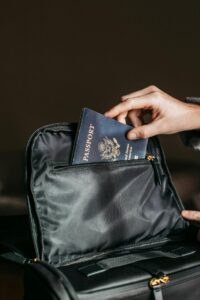For ages, we’ve heard and talked about how the United States offers a beacon of hope to everybody. However, there’s one factor that always limits the freedom and rights that many immigrants enjoy in America – violence or abuse. Luckily, there are so many pathways to escape domestic abuse and other forms of violence in the U.S., one of which is VAWA immigration.
What is VAWA immigration? How can you benefit from it? This article explains everything you should know.
What is The VAWA Immigration Law?
VAWA, in this context, stands for Violence Against Women Act. This landmark piece of legislation was enacted in 1994 with the aim of protecting victims of domestic violence and other forms of assault. Although the name of the law has women in it, it is not only directed at women. Instead, it is directed at anybody who may be suffering abuse from their host in the United States. One of the key provisions of the VAWA immigration law allows survivors of such abuse to self-petition for lawful permanent residency. Of course, this means applicants won’t need the consent or involvement of the abuser anymore.
Who is Eligible For VAWA Relief?
Despite being popularly referred to as an easy route for dependents to gain U.S. permanent residency, it’s important to note still that VAWA immigration is not for everyone. As such, it’s important to check eligibility before applying for this kind of visa. So, who qualifies for VAWA immigration? VAWA relief extends to the following categories of people:
- Spouses: The victim of abuse is eligible for a VAWA immigration visa if the perpetrator of the abuse is their husband. However, note that the perpetrator must also be a U.S. citizen or a lawful permanent resident of the United States.
- Children: Children are also qualified for this visa if they’ve been recipients of abuse perpetrated by their U.S. citizen parents. They’re also eligible if such parents are permanent residents of the United States.
- Parents: Parents are also eligible for this kind of visa if their stay in the U.S. is dependent on an abusive son or daughter.
How can VAWA Relief be Obtained?
Now that we’ve discussed VAWA immigration, you’re probably wondering about the steps involved in obtaining VAWA relief. Don’t worry; we have you covered. Let’s review some of the steps involved.
1. Contact a qualified immigration attorney
We can’t overemphasize the importance of having a qualified attorney on your side. The United States VAWA immigration law is pretty complicated and hard to interpret. Thus, you want to speak to someone who’s actual job is to interpret these laws. Beyond helping you interpret the complicated VAWA immigration law, an experienced attorney will also recommend possible actions. They know your chances just by listening to your story. So, they would offer other recommendations if this is not the best immigration route for your case.
2. Filing form I-360
The United States Citizenship and immigration services (USCIS) website has many immigration options and pages. However, when you click on the VAWA immigration page, one of the first things you’ll see is the Form I-360. Open it and fill it with the right information. It serves as the self-petition for lawful permanent residency under the VAWA law. Contact your lawyer if you are unsure how to fill any part of the form.
3. Providing evidence
The Form I-360 is an important part of your application, but it’s not the only part. While submitting the form, you must attach compelling evidence showing that you’ve truly suffered abuse to it. Acceptable evidence includes medical records, police reports, an affidavit from witnesses, and any other document that can further progress your case.
4. Adjudication
At this stage, you have filled out everything that needs filling and submitted everything that needs submitting. The USCIS will take its time to review all the information you’ve provided before getting back to you. They will tell you whether to go on with your Green Card application or not. Please note that all correspondence from the USCIS will be sent to the address you provided on Form I-360.
Notable Challenges
The steps to applying to VAWA may seem simple, but it does not go without its challenges. The victim’s main obstacle may include being aware of and understanding the options available to them. We’ve also seen cases of failures due to language and cultural differences. A lack of or partial understanding of the American culture can cause you to fail in your application.
Additionally, victims who are not doing to well financially may find the process of obtaining supporting documents challenging. An experienced lawyer can help you pass through these barriers. They’ll translate the law to you in the language you understand while showing you the easiest ways to get all the required documents.
The Coleman Law Group Can Help You
Again, an experienced lawyer can help simplify the procedure involved in obtaining the VAWA immigration visa. But where can you find such lawyers? The Coleman Law Group has handled a number of such cases, and we have the experience to help you through this process. We will be there for you every step of the way, so contact us to learn more about how we can help you.



